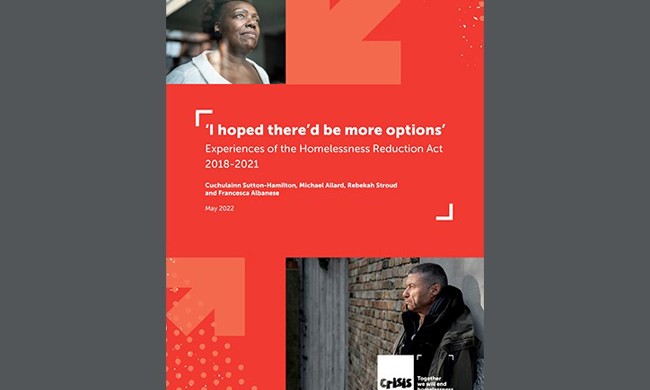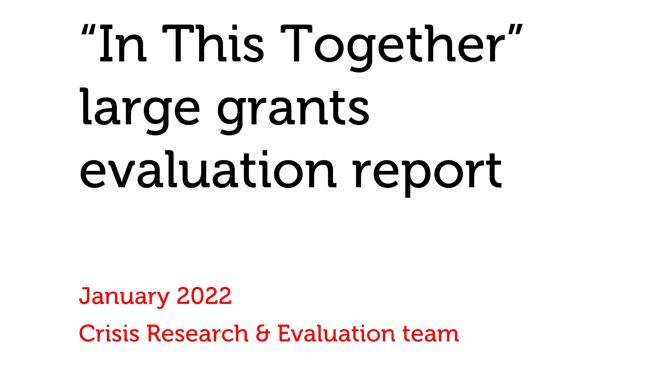There are a wide variety of services and interventions for homeless people in the UK. Research and evaluations of these are vital as they demonstrate what works and how better practice and support can be developed.
If homelessness is to be ended, this information needs to be used to ensure that policy and practice are directed by knowledge of what works and what does not.
Support for single homeless people is predominantly delivered by third sector organisations. Many interventions and evaluations have been instigated and funded by government. For example:
Statutory support often excludes single homeless people with services differing greatly across the UK. There is evidence to suggest that homeless people are turned away from support and find it difficult to access housing and services to end their homelessness. (Nations Apart, 2014 and Turned Away, 2014).
To achieve the goal of ending homelessness we also need to understand what works in order to address the issue through evidence and data. This needs to involve making funding and investment decisions on solutions that have a positive impact on addressing homelessness.
The aim of the proposed Centre for Homelessness Impact is to be a force for evidence-based change to tackle homelessness. The Centre will strengthen insight into what works, pushing for interventions to be evaluated, to raise awareness about the need to use evidence and data to make better decisions.
See the feasibility study Ending homelessness faster by focusing on ‘what works’, 2017 on how this will be achieved.
Crisis Skylights provide holistic support for housing, education, training and employment, health and arts based activities across Great Britain. A series of evaluations have been undertaken to assess the effectiveness of the Skylight model and to improve the outcomes for people who use these services.
A longitudinal evaluation of the Skylight model showed that one to one support and education can deliver progression into paid work. Improvements to mental health, self-esteem and wellbeing were made but outcomes were more uneven than progression into paid work. Improvements in housing security were also delivered but challenges existed in high pressure housing markets (Crisis Skylight: Final Report, 2017).

15 in-depth qualitative interviews were carried out by the Crisis Best Practice team with people who had recent experience of homelessness, to find out more about their experiences in the lead-up to housing crisis and potential “windows of opportunity” available to provide help when facing the risk of homelessness.
View moreThe Berkeley Foundation funded Crisis Skylight Brent to develop place-based work with the intention of increasing opportunities to end homelessness in Brent and to add to Crisis’ learning about how ending homelessness can be delivered locally.
View more
This report is based on focus groups with people with experience of homelessness in six areas across Scotland. It explores their experiences of housing crisis and what was (or was not) done to prevent them from becoming homeless.
View moreThe Crisis Framing Homelessness Project has commissioned a bi-annual online survey to track the U...
View more
In 2018 the Homelessness Reduction Act (HRA) introduced huge changes to the English homelessness...
View moreUpdate, 30th May: our final report on the Homelessness Reduction Act is available here. In 2018,...

The beginning of the COVID-19 pandemic increased the pressure on the services supporting people f...
View moreThe Crisis Framing Homelessness Project has commissioned a twice-yearly online survey to track pu...
View more
A significant proportion of the people experiencing homelessness in the UK are originally from an...
View moreThe Crisis Framing Homelessness Project has commissioned a bi-annual online survey to track the U...
View more
Crisis’ “In This Together” (ITT) small grants programme was set up to support groups and organisa...
View more
The Tackling Homelessness for Women Survivors of Modern Slavery Project (Project TILI – Train, Id...
View more
The homelessness response to COVID-19 has seen extraordinary action taken across Great Britain to...
View more
This is the final report of a three-year evaluation of the Tackling Multiple Disadvantage (TMD) p...
View more